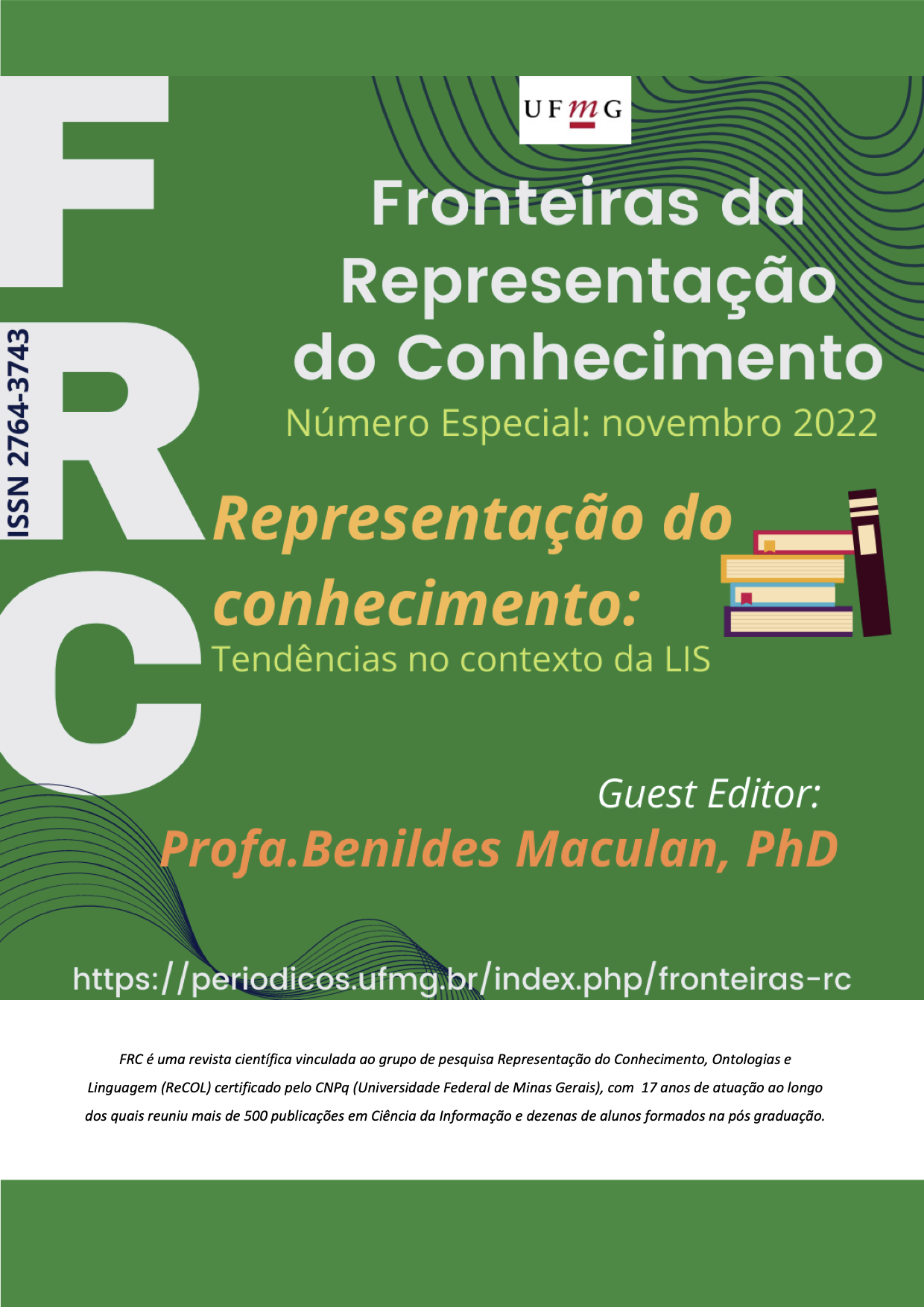The conceptual interdisciplinarity of context in the perspective of Knowledge Representation
Main Article Content
Abstract
Introduction: The word context has different interpretations, depending on the terminological approach given to it, in relation to language, it can be considered from the terminological point of view, linguistic context, and metalinguistic. On the other hand, the context in the scope of Information Science, the context is observed by the informational environment in which the production, representation and use of information occurs, in this sense this research aims to clarify the context as an expression for the representation of knowledge domains. Objective: This article aims to study the interdisciplinary relations of the concept "context", from the definitions suggested by the authors of the sample selected for the research, to trace borderline perspectives in the areas of knowledge and verify their interdisciplinary occurrence. Methodology: In this sense, the following question was made to direct this study: what are the conceptual aspects of the areas of knowledge that subsidize the
interdisciplinary relations about context? The sample will consist of 36 definitions extracted from the 89 documents in the research universe. Besides the constitutive elements of the concept context, it will also use the author's training category and
area of knowledge from which these definitions originated. For data analysis, it will use the Content Analysis method, proposed by Bardin (2011). Results: The elements that constitute the definitions of the analyzed documents are distributed in: person with 27%, event with 26%, object with 23%, environment with 20% and place with 4%; these definitions are distributed in several areas of knowledge with the authors' backgrounds and publications in diverse areas. Final Considerations: The applications of context elements in the fields of Knowledge Organization, Information Science, and Computer Science explain the interdisciplinary relationships that the concept of context maintains in the different fields of knowledge.
Article Details
Issue
Section

This work is licensed under a Creative Commons Attribution 4.0 International License.
From: https://creativecommons.org/licenses/by/4.0/
You are free to:
- Share — copy and redistribute the material in any medium or format
- Adapt — remix, transform, and build upon the material
- for any purpose, even commercially.
- The licensor cannot revoke these freedoms as long as you follow the license terms.
Under the following terms:
-
Attribution — You must give appropriate credit, provide a link to the license, and indicate if changes were made. You may do so in any reasonable manner, but not in any way that suggests the licensor endorses you or your use.
- No additional restrictions — You may not apply legal terms or technological measures that legally restrict others from doing anything the license permits.
Notices:
- You do not have to comply with the license for elements of the material in the public domain or where your use is permitted by an applicable exception or limitation.
- No warranties are given. The license may not give you all of the permissions necessary for your intended use. For example, other rights such as publicity, privacy, or moral rights may limit how you use the material.


